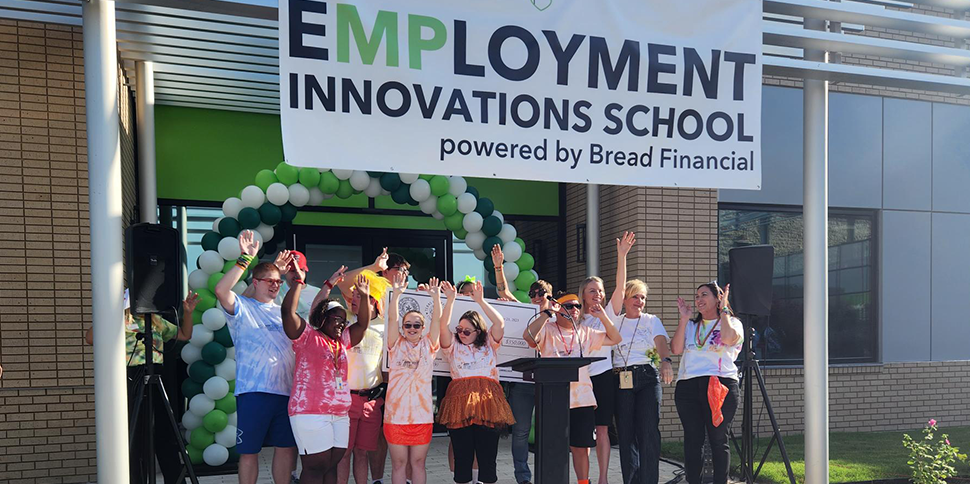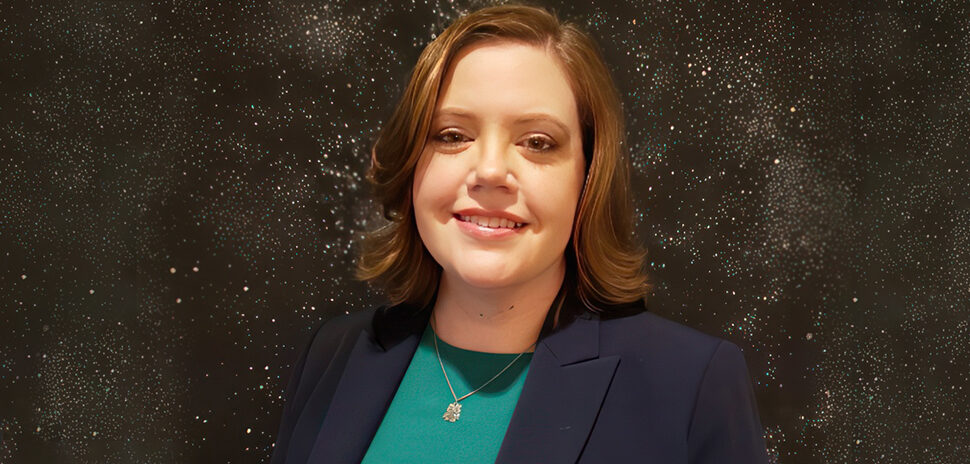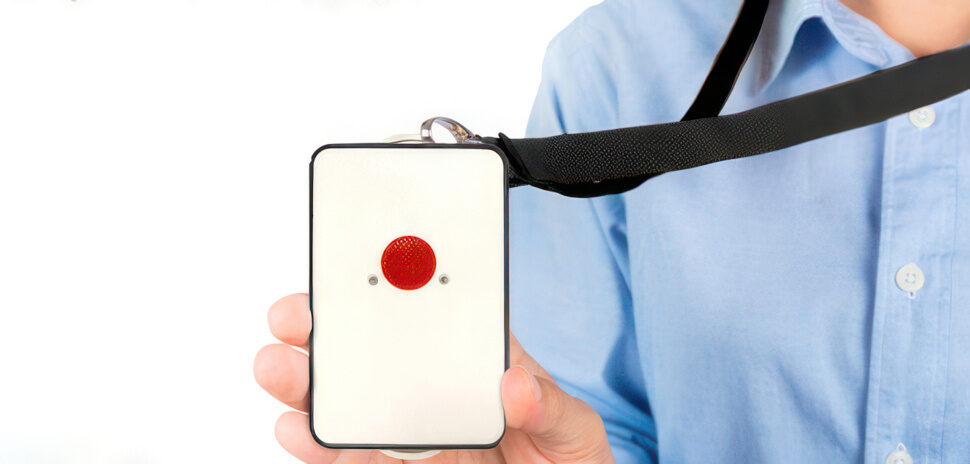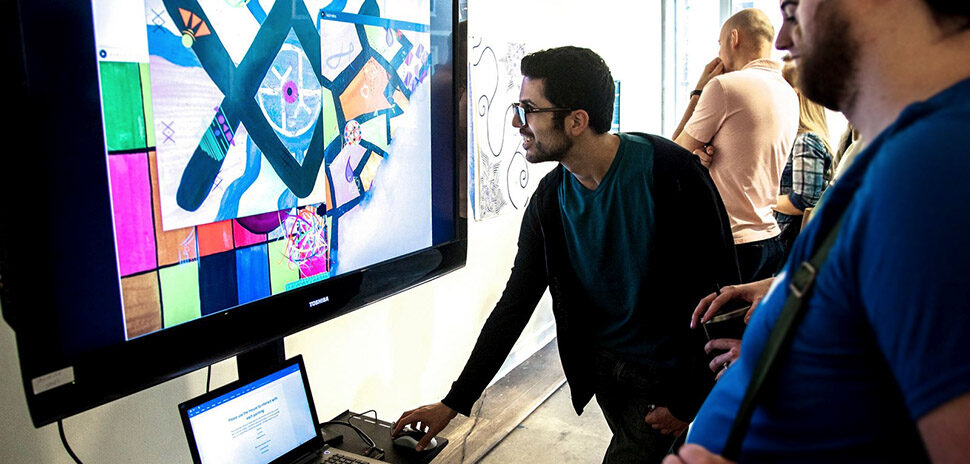One in four Americans has a disability. When looking at the 60+ crowd, that statistic changes to one in three. That’s between roughly 90- and 110-million people, and as baby boomers continue to age, that number is likely to increase.
“It’s highly likely that you will be part of this group at some point,” said Michael Thomas, executive director of My Possibilities, at a recent ribbon-cutting for the Employment Innovations School, powered by Bread Financial.
My Possibilities opened its doors in 2008—the work of a few parents who realized they had a problem.
“My son was aging out,” said Charmaine Solomon, one of the original mothers, whose son sustained a traumatic brain injury. “Schools are wonderful, but then there’s this huge black hole afterwards. So now we take over when traditional school stops.”
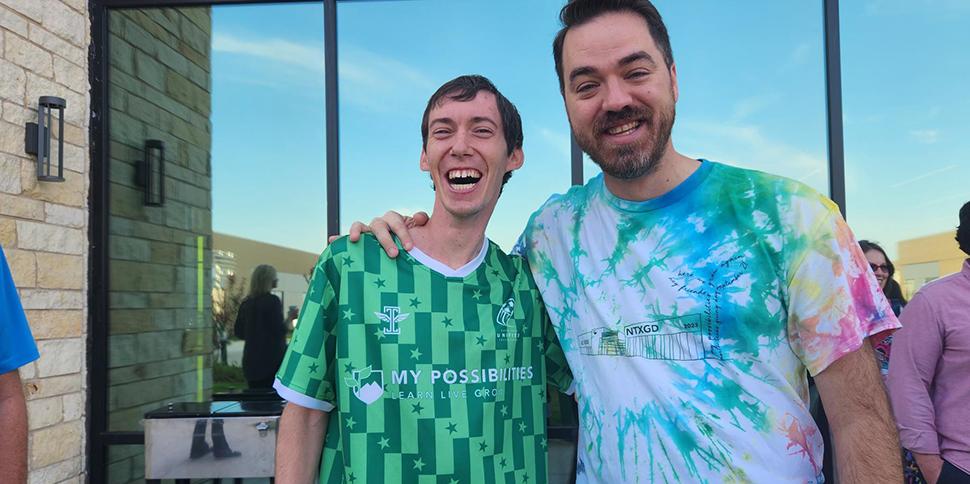
Michael Thomas (right), executive director of My Possibilities, with one of the school’s HIPsters.
Filling the gap
Until My Possibilities, there were no options for people with disabilities to continue learning life and job skills in North Texas, which meant people from the age of 18 well into adulthood remained unemployed and largely excluded from society.
“We started with 10 students, affectionately known as ‘Hugely Important People’ (HIPsters), and it’s just grown exponentially because there’s a need,” said Soloman.
The original program was designed as “continuing education”— learning the skills needed for living as independently as possible. Now, at the Employment Innovations School — in a second building on the same campus — those who want to will have access to classes that prepare them to work in a specific industry.
“It’s preparation on one side of the campus, and now action on the other,” said Solomon, beaming.
Thomas said they wanted to model My Possibilities after a successful similar organization, but they couldn’t find one in the entire country.
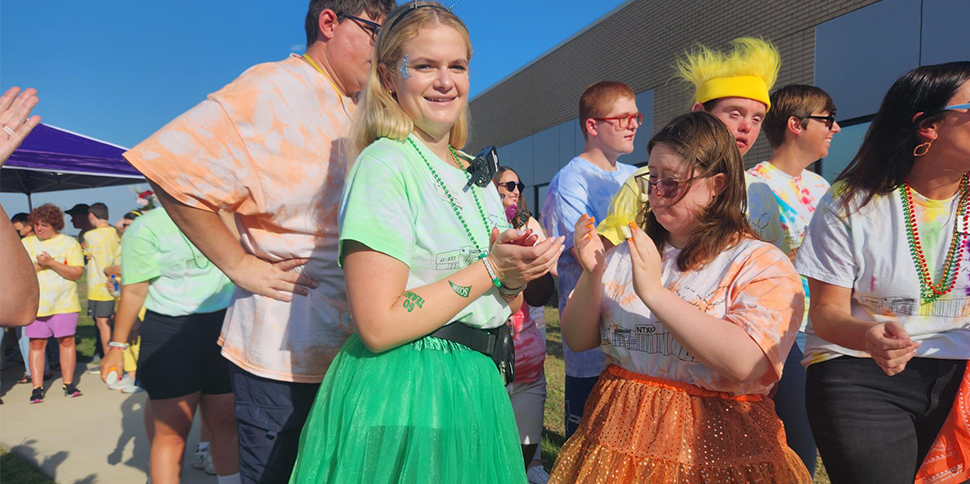
A model of inclusivity
Open from 8 a.m. to 6 p.m. Monday through Friday, HIPsters can choose to learn about retail, culinary, hospitality, and more. They range in age from 18 to over seventy.
“We work together to see where they would love to work, get them ready, and then place them in that job.”
“Our whole goal is to demonstrate that people with disabilities have the capacity to work, engage, and live independently. If you provide a pathway for them, you’ll get some of the most loyal, hardworking employees around,” said Thomas.
Companies are beginning to realize that not only is it inclusive to employ people with disabilities, it also makes financial sense.
According to Thomas, four percent of the American population has either autism, or intellectual or developmental disabilities (IDD), which is defined as an IQ of 75 or below, and half of them are working age. Of that two percent, half are employment-ready with just a little bit of training and support.
“And our population will stay in those entry roles for life,” added Thomas. “Think about how much money is spent training workers, who cycle out of entry-level jobs for different opportunities.”
Solomon and the other founders raised $250 thousand dollars to open My Possibilities. An additional $350 thousand dollars in grant money from the Texas Workforce Commission was announced at the ribbon-cutting. That money will aid in hiring and onboarding staff who will serve 300 additional HIPsters.
A small fee-for-service is also charged—between $19 and $25 dollars per day, for which the Texas Medicaid waiver program can be used.
$50 million campus
With the opening of the innovations school, My Possibilities has grown into a roughly $50 million dollar campus. And as more people learn about the unique role the organization plays in North Texas, the pool of potential benefactors gets bigger. Founders and friends will also continue to fundraise for every student in the program because they know that making every person feel like they can live up to their potential is priceless.
For more information on the program and how to get involved, contact My Possibilities at [email protected].
Voices contributor Nicole Ward is a data journalist at the Dallas Regional Chamber.
![]()
Get on the list.
Dallas Innovates, every day.
Sign up to keep your eye on what’s new and next in Dallas-Fort Worth, every day.

